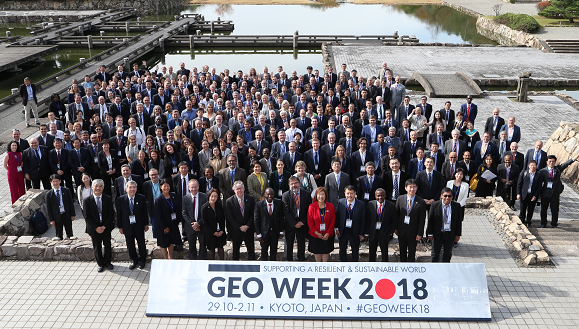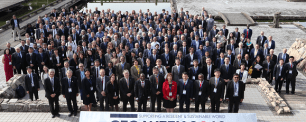CREAF becomes a GEO Associate
With a view to improving access to and the availability and use of geospatial data, the intergovernmental partnership GEO (Group on Earth Observations) has this year established a GEO Associate membership category for organizations based anywhere in the world and related to such data. CREAF recently became one of the first six GEO Associates.

The GEO community, which supports over 100 UN member states, created the GEO Associate status to strengthen non-governmental Earth observation organizations’ ties with the commercial sector, a source of important public and private services. GEO is thus offering an opportunity to benefit from the collective knowledge, expertise and skills of its community and members. The key role GEO has played in developing programmes related to sustainable development indicators is illustrative of the group’s potential.
"For CREAF and the Grumets research group, recognition as a GEO Associate represents the consolidation of a decade of work", says Joan Masó.
“For CREAF and the Grumets research group, recognition as a GEO Associate represents the consolidation of a decade of work”, says CREAF researcher Joan Masó. As he explains, CREAF contributes to GEO’s activity in the areas of spatial data quality documentation (the GeoViQua project), Earth observation network coordination (the ENEON observatory nd the GEOEssential project), remote observation data transfer for managing protected zones (in the ECOPotential project), and the integration of citizen science with other Earth observation sources (in the GroundTruth 2.0 and WeObserve projects). Furthermore, according to Grumets member Ivette Serral, “as a GEO Associate we will be able to participate more actively and independently in European projects and influence decision-making on global geospatial data processing more directly”. She considers such a role “more necessary than ever given the current worldwide environmental crisis, with the Amazon burning and Arctic ice melting”.
With that in mind, having succeeded in joining the first group of GEO Associates, CREAF is set to participate in various activities at the GEO Week 2019 event in Canberra in November, where it will also be the subject of a presentation. “At a time like this, when the need to act to mitigate climate change is at odds with economic progress, GEO does important work in providing data that can be used to make decisions based on evidence – Earth observations – and the scientific knowledge generated thereby, in the interests of sustainable development”, concludes Masó.







